Y. C. Wang took his first step in business 60 years ago by opening a rice store on a loan of 200 NT dollars. Today, Wang's Taiwan Plastics Corporation is the biggest company in Taiwan and the world's largest manufacturer of PVC powder.
K. N. Lao got started in 1969 by manufacturing tennis rackets for famous-brand foreign companies. Eight years later he came out with his own brand, "Kennex." Today his company produces over 12,000 rackets a day, more than any other in the world, and Kennex has become a world-famous name in its own right.
Rags to riches stories like these and countless others have inspired generations of would-be Horatio Algers to start out on what they hope are their own roads to success, and for as many as fall by the wayside, there are at least as many eager to set out and take their place.
In fact, a government survey last year showed that over 87 percent of Chinese young people would like to start their own businesses some day. And based on current trends, it seems many of them will do just that. How do they go about it?
Typically, a few friends with common aspirations will pool their savings, draw up a business plan, and then apply for help from the National Youth Commission, which serves ROC citizens aged twenty to forty. If the Commission approves their plan, it will help them obtain financing and advise them on how to get their business underway. Since its establishment in 1968, the Commission has helped over 5000 young businessmen get started on their own.
While most first-time entrepreneurs are still young, the average age has gradually been increasing. "That's because the preparation needed to set up a business, is greater as the industrial system has grown more complicated and competition intensified," explains J. H. Chen, Secretary General of the China Youth Career Development Association. "During the 60's, when the economy was booming, entrepreneurs were usually in their early twenties. In the 70's, the average age was about 25, but now it's around 30.
Indeed, some question whether small-scale enterprises are still needed at a time when capital and technology appear headed toward increasing concentration. One who believes they are is S. J. Hsiung, Chairman of the Development Association. "Every big business was a small one once; without small businesses, where would the big ones come from? Besides, entrepreneurial activity stimulates the economy--it's needed in any age."
But when Taiwan was first industrializing a generation ago, business opportunities seemed nearly limitless. Now, because higher labor costs have increased the need for automation, more capital is needed to get started. And structural rigidities have made it difficult for new firms to break into many industries.
"What counted before was production technique. But now you have to consider the consumer's wants first. Choosing the right target is what counts," says Hsiung.
And what is the right target for a new business? T. C. Chang, Vice General Manager of the China Productivity Center says, "Entrepreneurship should include an element of 'blazing a new trail', whether it's offering a new service, making a new product, or opening a new market. Just taking a share of someone else's pie is not really creating a new business."
In fact, most successful enterprises are created to meet a new need in society. "Society is constantly progressing and lifestyles are constantly changing so there's always an opportunity for the right person," says C. C. Lee, General Manager of the VO-5 Company in Taiwan. He became a success himself by seizing just such an opportunity. By introducing VO-5 to Taiwan in 1976, Lee got a head start in the quality shampoo market, a lead he maintains today.
"If you want to succeed in starting a business, the most important step is picking the right line," says C. N. Pai, Vice General Manager of the Bank of Communications. And except for completely new industries, the right line should be something in the entrepreneur's own field; only then can he get the necessary jump on his competitors in discovering a new opportunity.
For example, T. C. Liu, General Manager of the Silver Arrow Developing Company, originally worked for Kodak, where he discovered that although it actually takes only half an hour to develop a roll of film, customers would have to wait 2 or 3 days for their pictures to come back from a centralized developing center because photo stores did not have their own developing equipment. So when Japan came out with a compact developer in 1980, Lee was ready to act. He founded Silver Arrow with 10 branch locations and put a developer in each. They proved immensely popular, and the growth of Silver Arrow has attracted scores of imitators. "Because we recovered our investment early and established loyal customers, we are surviving, but it's very tough for the newcomers," Liu concludes. "You usually can't make it just following the herd."
Since it's hard to break into an established industry, the best opportunities now appear to be in high technology and the service industries. Dr. T. C. Lee saw this six years ago and returned from the U. S. to found the Hwa Yu Company, which applies biochemical technology to the treatment of water pollution. He says, "At the time I felt that Taiwan's living standards had reached the point where people were ready to turn their attention to the environment. And indeed, four years later the Revised Water Pollution Act was passed and the company's services have been in great demand."
Dr. Lee thinks now is a good time for Chinese who have studied abroad to come home and set up businesses. Since Taiwan is following the same development path as the Western industrialized nations, overseas-trained Chinese often possess just the technical knowledge most marketable in today's Taiwan. "But if you find an opportunity you've got to move fast. And you've got to make a firm choice. You can't keep your job overseas and expect to juggle two balls at once."
Dr. Lee also suggests overseas Chinese should return for a short visit first to check out the business environment and contact the institutions that can help. Besides the National Youth Commission and the Development Association, these include the Economic Department's United Investment Service Center and local development boards. High-tech enterprises may wish to go directly to the China Development Fund, the Bank of Communications, or other lending institutions.
Financing is generally much easier to obtain under a partnership than on one's own. But partners must be chosen carefully. "Somebody who wears suits and somebody who wears jeans are unlikely to work well together," says I. J. Wu of the Hsin Li Chemical Corporation. "It's best for partners to come from similar backgrounds and share similar goals. Also, they should make clear from the start what their respective duties and authorities are."
"Every play has a main lead and supporting roles. A company is the same," says C. C. Lee of VO-5. "Some people think that someone's feelings may get hurt if you talk about things like position and power. But if you don't, you're planting a time bomb that will some day both hurt feelings and destroy the company."
An additional consideration is how well partners complement each other. Many industries are so complicated now that no one person can master all the aspects of running a business.
If you've considered all these factors but are still not sure whether to go ahead, it may be best not to act too rashly. "Today's young people don't have the luxury to fail," warns C. C. Lee. "In an industrial society, personal trust is low and a record of failure is suspect. So be careful before you take that first step."
Starting a new business is truly a road with no return. It's like having children, who remain a lifelong source of concern. Every aspect of a company, major or minor, all are the boss' problem.
It's been said that as soon as you walk into a company you can tell who the boss is--he's the one with the worried look on his face.
So think twice before you set out on a road that doesn't turn back.
(Peter Eberly)
[Picture Caption]
S. J. Hsiung, Chairman of the China Youth Career Development Association, says, "Entrepreneurial activity stimulates the economy--it's needed in any age."
Successful entrepreneur C. C. Lee advises, "To make it big in a new business you've got to provide something society needs and is not getting."
Silver Arrow's promise to develop pictures in 40 minutes was just what the public wanted to hear. Pictured is T. C. Liu, President.
Dr. T. C. Lee, who returned from the U.S. six years ago to set up an environmental firm, thinks the time is right for Chinese abroad to make use of their expertise in their own country.
Successful businessmen continue to improve themselves to face new challenges. Y. R. Wu, Hsin Li Chemical's General Manager, attends class at Chengchi University's Business Management Institute.
Y. C. Pai, General Manager of Lung Hwa Electronics, urges would-be entrepreneurs to think twice before they set out on a "road with no return."
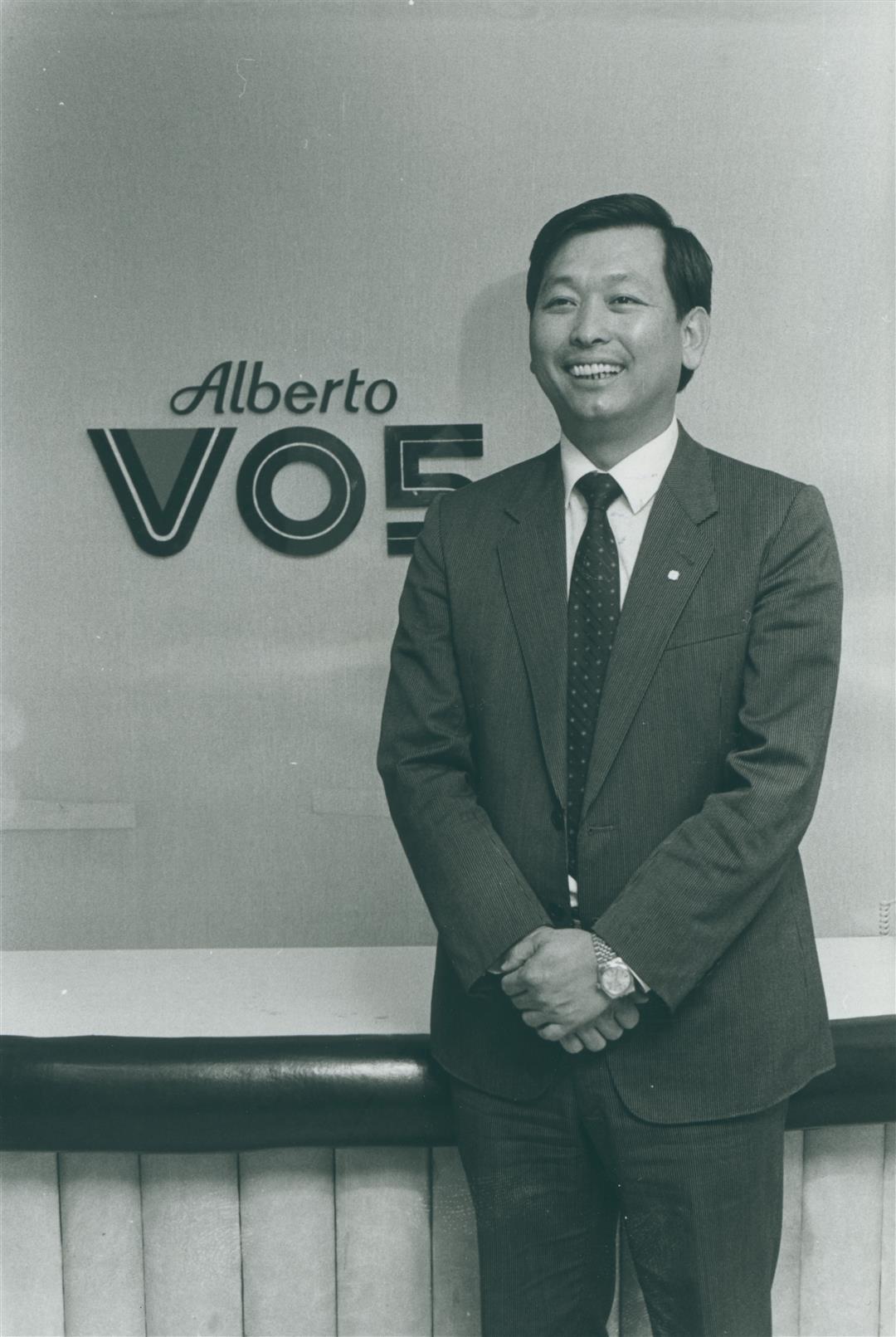
Successful entrepreneur C. C. Lee advises, "To make it big in a new business you've got to provide something society needs and is not getting.".
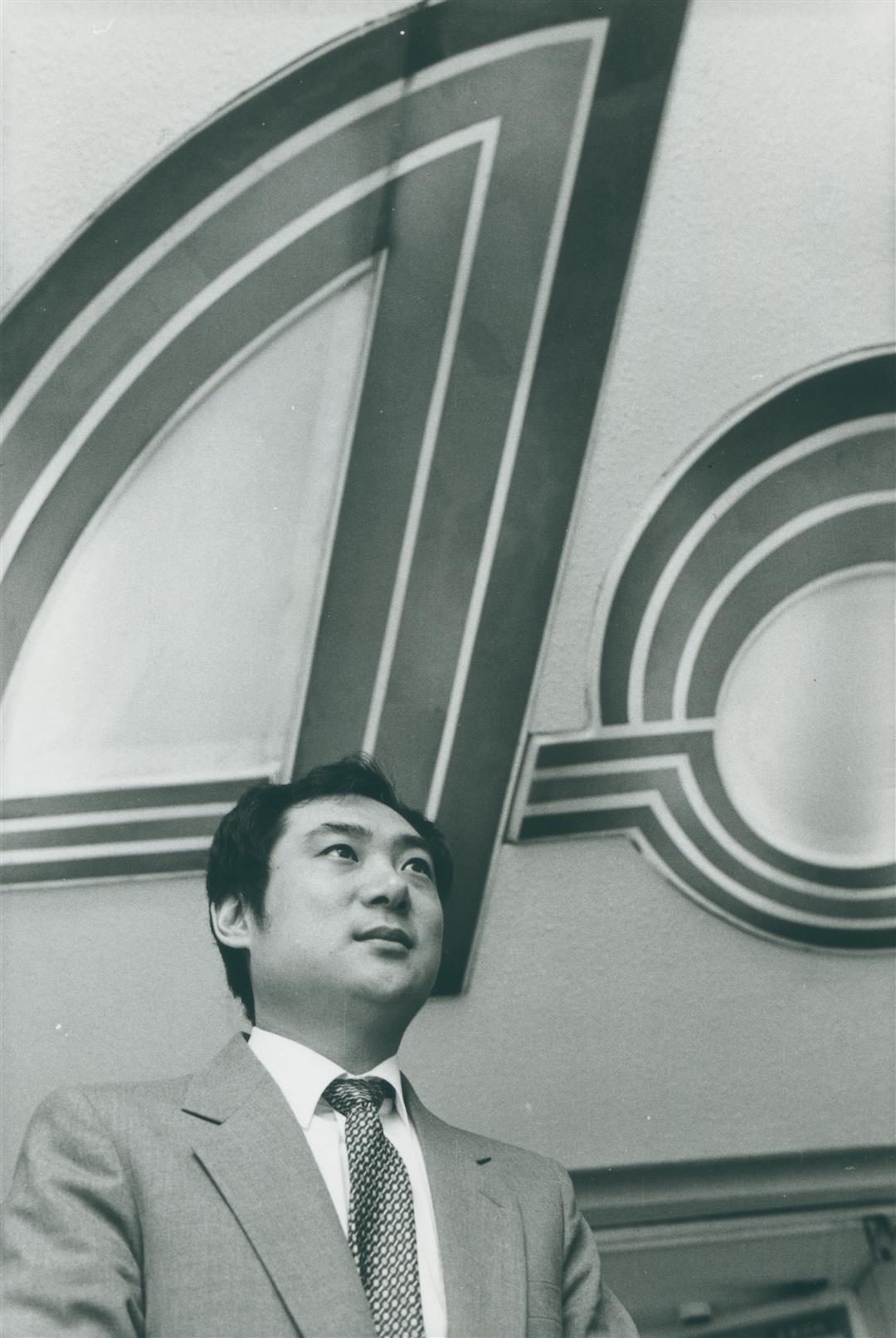
Silver Arrow's promise to develop pictures in 40 minutes was just what the public wanted to hear. Pictured is T. C. Liu, President.
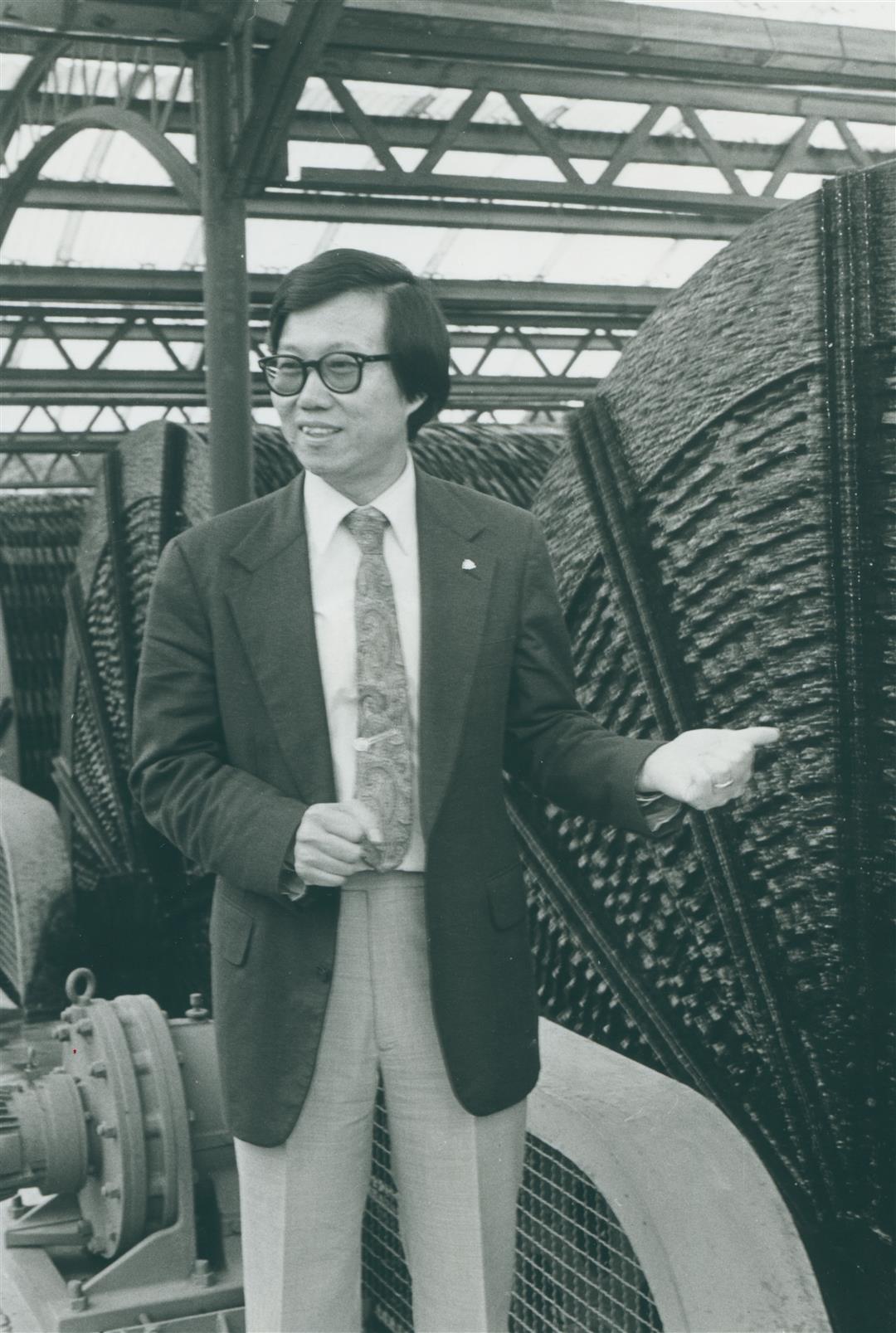
Dr. T. C. Lee, who returned from the U.S. six years ago to set up an environmental firm, thinks the time is right for Chinese abroad to make use of their expertise in their own country.
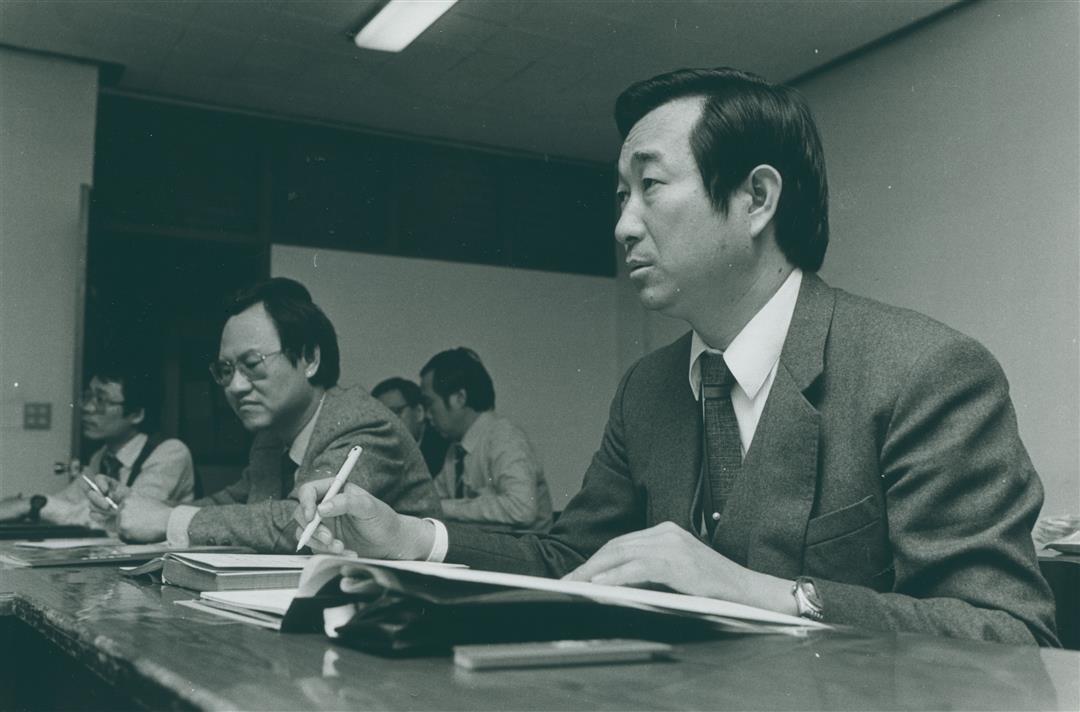
Successful businessmen continue to improve themselves to face new challenges. Y. R. Wu, Hsin Li Chemical's General Manager, attends class at Chengchi University's Business Management Institute.
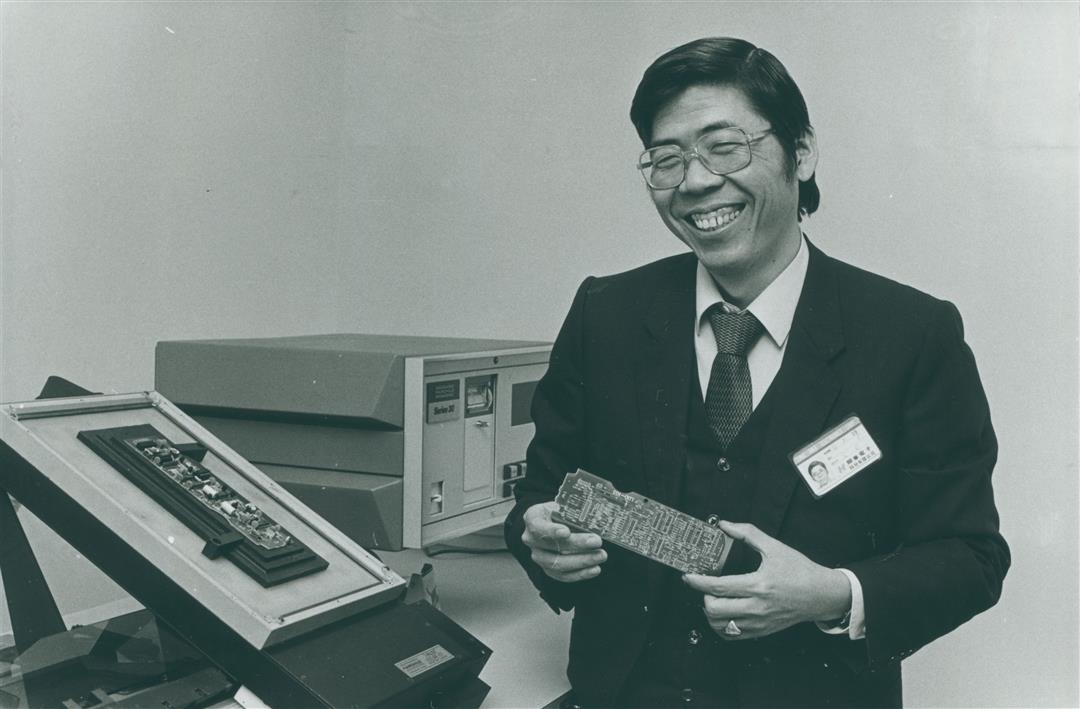
Y. C. Pai, General Manager of Lung Hwa Electronics, urges would-be entrepreneurs to think twice before they set out on a "road with no return.".